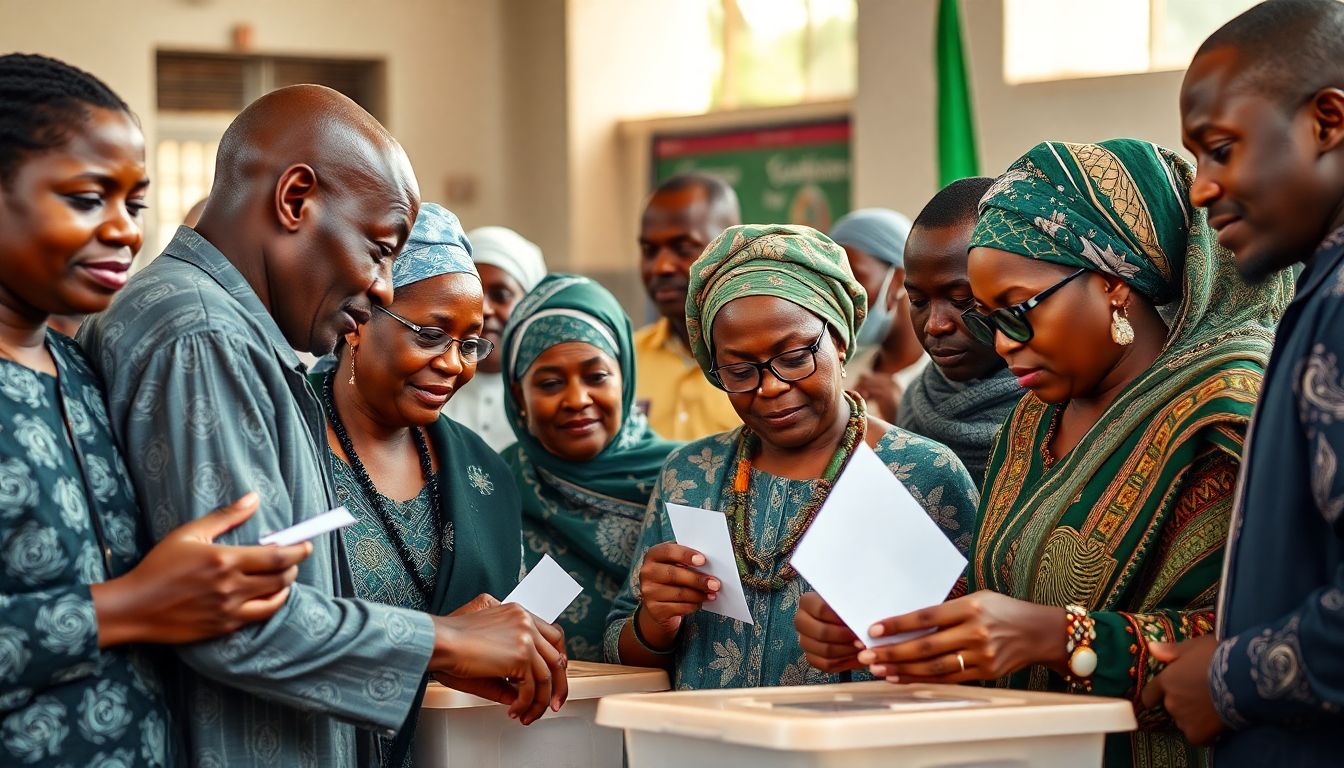Navigating Nigeria’s elections can be confusing, but understanding the electoral process is crucial for every citizen. Voting is not just a right; it’s a way to shape the future of the nation. This guide breaks down the electoral system into simple, digestible parts.
The Importance of Understanding the Nigerian Electoral System
The Nigerian electoral system plays a vital role in democracy. By knowing how it works, citizens can make informed decisions when they vote. Understanding the process also helps to ensure accountability and transparency.
Voter Turnout Statistics in Recent Nigerian Elections
Voter turnout varies from election to election. For example, in the 2019 general elections, approximately 35% of eligible voters participated. While this shows a level of engagement, it also highlights the need for improvement. Increasing voter turnout is essential for a representative democracy.
Engaging with the Electoral Process: A Citizen’s Guide
Every citizen has a role in the electoral process. Engaging with the system can be as simple as staying informed about candidates and issues. Attending town halls or discussions can further enhance understanding and participation.
The Key Players in Nigeria’s Elections
Understanding the key players in the electoral process is vital. Each has a specific role to play in ensuring a fair election.
The Independent National Electoral Commission (INEC): Roles and Responsibilities
INEC oversees all elections in Nigeria. Their responsibilities include:
- Conducting free and fair elections
- Registering voters
- Allocating polling units
- Announcing election results
INEC plays a pivotal role in maintaining the integrity of the electoral process.
Registered Political Parties in Nigeria: A Comprehensive List
Various political parties contest elections in Nigeria. Some of the major ones include:
- All Progressives Congress (APC)
- People’s Democratic Party (PDP)
- Social Democratic Party (SDP)
Each party presents candidates for elections, representing different ideologies and policies.
The Role of Civil Society Organizations in Monitoring Elections
Civil society organizations (CSOs) significantly contribute to the electoral process. They monitor elections, educate voters, and advocate for reforms. Their presence helps promote transparency and accountability.
Electoral Timeline and Key Events
Knowing the electoral timeline is crucial for voters. Several key events occur before, during, and after elections.
Pre-Election Activities: Voter Registration and Party Primaries
Before elections, eligible voters must register. The voter registration process enables citizens to confirm their identity and eligibility. Political parties also conduct primaries to select candidates for various positions.
Election Day Procedures: Voting, Counting, and Collation
On election day, voters head to polling units to cast their votes. The key steps involved are:
- Presenting voter ID
- Marking the ballot paper
- Submitting the ballot box
Once voting concludes, counting begins at polling units, followed by the collation of results at designated centers.
Post-Election Processes: Results Announcement and Disputes
After counting, INEC announces the results. However, disputes can arise over the results, leading to petitions or further investigations. It is essential to address these issues promptly to uphold democracy.
Understanding the Voting System in Nigeria
The voting system in Nigeria may seem complex, but it can be simplified.
The Nigerian Ballot Paper: Deciphering the Candidates and Parties
The ballot paper lists all candidates and their respective parties. Voters mark their choice clearly to avoid invalid votes.
The Process of Casting a Vote: A Step-by-Step Guide
To cast a vote, follow these steps:
- Confirm your voter registration status.
- Go to your polling unit.
- Present your ID to INEC officials.
- Mark your ballot.
- Submit your ballot in the box.
Understanding the Results: From Polling Units to National Totals
Results begin at polling units and aggregate to national totals. This process ensures that every vote counts, contributing to the legitimacy of the final outcome.
Challenges and Reforms in the Nigerian Electoral System
While the electoral system has improved, challenges persist.
Historical Challenges to Free and Fair Elections in Nigeria
Past elections have faced issues like violence, vote buying, and rigging. These challenges undermine public trust in the electoral process.
Recent Electoral Reforms and Their Impact
Recent reforms, such as the use of technology and electronic voting, aim to enhance the electoral process. These changes promote transparency and reduce the likelihood of fraud.
Ongoing Efforts to Improve the Electoral Process
Various organizations and stakeholders collaborate to advocate for electoral reforms. Continuous dialogue is essential for fostering a fair electoral landscape.
Your Role as a Voter in Shaping Nigeria’s Future
Every voter has the power to influence the electoral process.
How to Verify Your Voter Registration Status
You can verify your registration status via INEC’s official website or local offices. Ensure your details are correct ahead of election day.
The Importance of Peaceful Participation in Elections
Peaceful participation is crucial for a positive electoral atmosphere. Engaging in constructive dialogue can foster understanding among diverse groups.
Resources for Further Information and Engagement
Citizens can access numerous resources for learning about the electoral process. Websites like INEC, local NGOs, and community organizations offer valuable insights.
Conclusion: Empowering Citizens for a Stronger Democracy
Understanding the electoral process empowers citizens and strengthens democracy.
Key Takeaways: Understanding Your Rights and Responsibilities
Every voter has rights and responsibilities. Know your rights, and ensure you participate actively in elections.
The Path Forward: Continuous Engagement and Advocacy
Stay engaged and informed, advocating for a better electoral process. Your voice matters in shaping the future.
Calls to Action: Get Involved and Make Your Voice Heard
Take action today! Get involved in community discussions, volunteer with civil society organizations, and encourage others to vote. Together, we can build a stronger, more democratic Nigeria.
